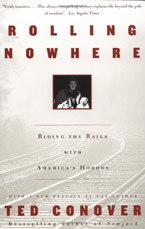Today for J800 my class attended a lecture and question and answer session with Jim VandeHei, the co-founder of Politico. Politico is a web and print based media outlet for national political news, that has been pretty successful in the last few years when other media outlets have been struggling (by that I mean they are actually making money instead of bleeding it, hiring young reporters instead of closing ranks on not letting anyone new in).
It was really encouraging to hear someone say that Journalism isn’t dead, and that if you are bright and driven you’ll be OK. The main thing that I took away from his talk was that if you know what you want to do and what you want to report on, you should just be out there doing it. Don’t take any job that doesn’t have to do with your field, don’t settle. Make yourself known, and just keep calling until someone gives you a chance.
Even though I’m still leaning more towards a public information officer position than a full blown journalist position, it was nice to hear that it can be done. Not finding a job after going through all the effort of moving to Wisconsin to get my Master’s degree is definitely something that scares me. Listening to VandeHei made me inspired to start looking for an internship for next summer (which is my Thanksgiving break goal).

